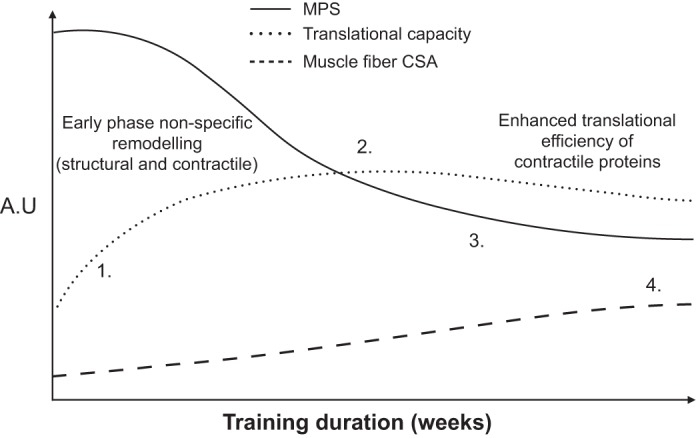Fig. 1.

A proposed framework of changes in muscle protein synthesis (MPS), translational capacity, whole muscle, and muscle fiber cross-sectional area (CSA) in response to resistance exercise training. The overarching concept is that initial increases in MPS are a biological response to support remodeling of damaged muscle protein and eventually muscle hypertrophy. 1: The early stage increases in MPS are sustained partly by concomitant elevated translational capacity to support the remodeling of damaged structural and contractile elements of the muscle proteome. 2: Then, after the attenuation of exercise-induced muscle damage, there is a reduction in contribution of MPS to the remodeling of proteins related to the structural and architectural apparatus toward contractile muscle proteins. 3: After a period of time, the rates of MPS are subsequently regulated by the adaptive increase in translational efficiency. 4: This results in a detectable increase in skeletal muscle size and mass. All of these responses are deigned to support an expansion of the muscle protein pool, i.e., single fiber CSA. A.U., arbitrary units.
